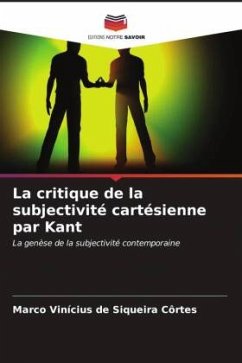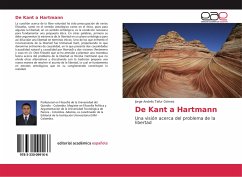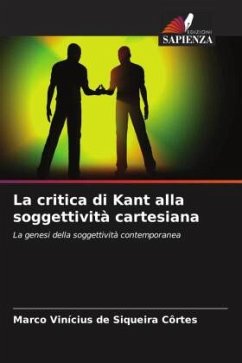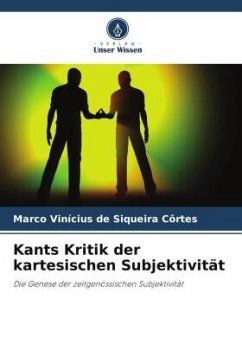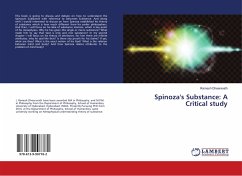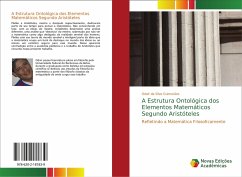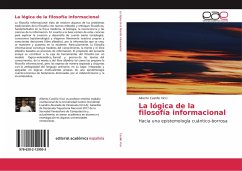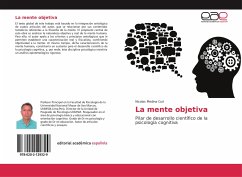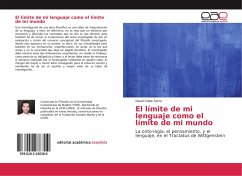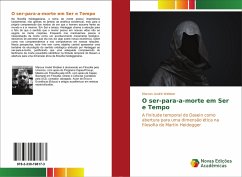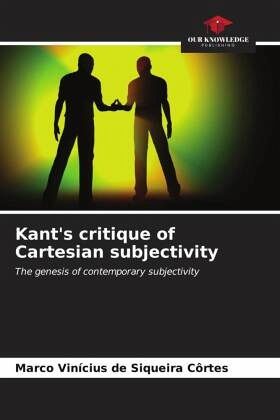
Kant's critique of Cartesian subjectivity
The genesis of contemporary subjectivity
Versandkostenfrei!
Versandfertig in 6-10 Tagen
36,99 €
inkl. MwSt.

PAYBACK Punkte
18 °P sammeln!
Aubenque, in analysing Kant's critique of the Cartesian notion of the substantial subject, asks the following question: "Indeed, why suppose a substance behind the attributes, if the substance is nothing other than the essence, that is, the unity of the essential attributes or, as Descartes says, the act that reveals the essence?" He asks why a real substratum is needed to give the attributes their foundation, since these are the very "act that reveals the essence". For Kant, this question represents a fundamental position in his philosophy, in that he wants to free the subject from a precise ...
Aubenque, in analysing Kant's critique of the Cartesian notion of the substantial subject, asks the following question: "Indeed, why suppose a substance behind the attributes, if the substance is nothing other than the essence, that is, the unity of the essential attributes or, as Descartes says, the act that reveals the essence?" He asks why a real substratum is needed to give the attributes their foundation, since these are the very "act that reveals the essence". For Kant, this question represents a fundamental position in his philosophy, in that he wants to free the subject from a precise ontological determination. This ontological liberation is expressed by Kant when he comments on the place of the judgement "I think" at the beginning of his critique of the substantiality of the "thinking I", and indicates this concept as: "present in all thought and independent of all experience", in other words, a mere logical (and not ontological) condition. This leads to a new position on the subject that we can consider. Examining this turn in favour of a non-ontology operated by the letter of the Kantian text is a condition for understanding how subjectivity emerges in his philosophy.



